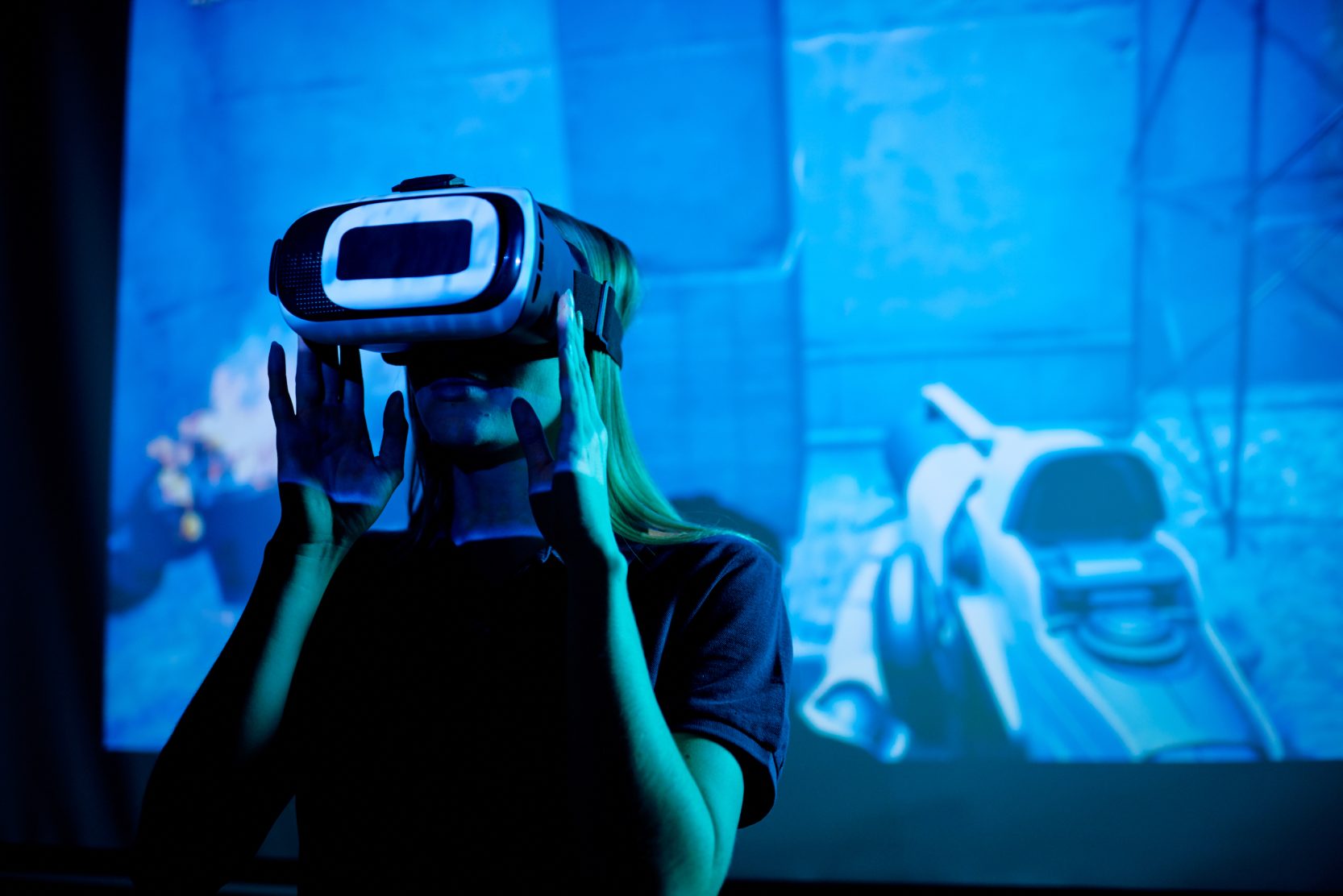Facebook’s Meta unveils AI projects aimed at building the metaverse
زكربيرج يكشف عن مشروعات للذكاء الاصطناعي تستهدف بناء مستقبل عالم الميتافيرس
Reuters
Facebook-owner Meta is working on artificial intelligence research to generate worlds through speech, improve how people chat to voice assistants and translate between languages, CEO Mark Zuckerberg said on Wednesday, as he sketched out key steps to building the metaverse.
Zuckerberg is betting that the metaverse, a futuristic idea of virtual environments where users can work, socialize and play, will be the successor to the mobile internet.
“The key to unlocking a lot of these advances is AI,” he said, speaking at the company’s live-streamed “Inside the Lab” event.
Zuckerberg said Meta was working on a new class of generative AI models that will allow people to describe a world and generate aspects of it. He showcased an AI concept called Builder Bot — which allows users to describe what they want the AI to generate. He showed a demo where he, as a legless avatar on an island, commanded AI through speech to create a beach and then add clouds, trees and even a picnic blanket.
“As we advance this technology further, you’ll be able to create nuanced worlds to explore and share experiences with others, with just your voice,” said Zuckerberg.
He also said Meta was working on AI research to allow people to have more natural conversations with voice assistants, a step towards how people will communicate with AI in the metaverse. He said the company’s
Project CAIRaoke was “a fully end-to-end neural model for building on-device assistants.”
The social media company, which recently lost a third of its market value after a dismal earnings report, has invested heavily in its new focus on building the metaverse and changed its name to reflect this ambition. This month Meta reported a 2021 net loss of $10.2 billion from its Reality Labs, the company’s augmented and virtual reality business.
On Wednesday, Zuckerberg said Meta was preparing for how AI could interpret and predict the types of interactions that would occur in the metaverse, by working on “self-supervised learning” – where AI is given raw data rather than being trained on lots of labeled data.
Zuckerberg said Meta was also working on egocentric data, which involves seeing worlds from a first-person perspective. He said it had brought together a global consortium of 13 universities and labs to work on the largest ever egocentric dataset, called Ego4D.
The company also said it was working to make a single AI system capable of translating between all written languages. Zuckerberg also announced that Meta was working on a universal speech translator, aiming to provide instant speech-to-speech translation across all languages.
Meta also recently announced its research team has built a new artificial intelligence supercomputer that it thinks will be the fastest in the world when completed in mid-2022.
رويترز
قال مارك زكربيرج الرئيس التنفيذي لشركة ميتا المالكة لموقع فيسبوك يوم الأربعاء إن الشركة تعمل على برنامج أبحاث للذكاء الاصطناعي يستهدف خلق عوالم افتراضية عبر أوامر صوتية والسماح للبشر بإجراء محادثات أكثر واقعية بالاستعانة بوسائل المساعدة الصوتية والترجمة بين اللغات، في خطوة صوب بناء عالم الميتافيرس الافتراضي.
ويراهن زكربيرج على أن الميتافيرس، وهو مفهوم مستقبلي لبناء بيئات افتراضية حيث يمكن للمستخدمين العمل والتواصل الاجتماعي واللعب، سيكون خليفة الإنترنت.
وقال زكربيرج في فعالية لشركة ميتا تركز على الذكاء الاصطناعي جرى بثها مباشرة على الإنترنت إن مشروع الشركة والذي يدعي كايروكي هو “نموذج شبكي شامل لبناء وسائل مساعدة صوتية على الأجهزة”.
وضخت شركة وسائل التواصل الاجتماعي، التي فقدت مؤخرا ثلث قيمتها السوقية بعد صدور تقرير سيئ للأرباح، استثمارات ضخمة في حملتها الجديدة لبناء الميتافيرس وغيرت اسمها لتعكس هذا الطموح.
كما أعلنت ميتا مؤخرا أن فريقها البحثي بنى حاسوبا عملاقا جديدا للذكاء الاصطناعي يعتقد أنه سيكون الأسرع في العالم عند اكتماله في منتصف عام 2022.
وقال زكربيرج إن ميتا كانت تعمل على نوع جديد من نماذج الذكاء الاصطناعي والذي سيسمح للأشخاص بخلق عوالم افتراضية عبر وصفها فقط لوسائل المساعدة الصوتية. واستعرض مؤسس فيسبوك الأداة الجديدة عبر الظهور على هيئة شخصية افتراضية (أفاتار) بلا أرجل على جزيرة نائية آمرا الذكاء الاصطناعي من خلال الحديث لتشكيل شاطئ ثم إضافة السحب والأشجار وحتى البساط المستخدم للنزهة.
قال زكربيرج “مع تقدمنا في هذه التكنولوجيا بشكل أكبر، ستتمكن من إنشاء عوالم أكثر تفصيلا لاستكشاف وتبادل الخبرات مع الآخرين… باستخدام صوتك فقط”.
وقالت الشركة أيضا إنها تعمل على إنشاء نظام ذكاء اصطناعي قادر على الترجمة بين جميع اللغات المكتوبة. وأعلن زكربيرج أيضا أن ميتا تعمل على أداة ترجمة فورية للكلام عبر جميع اللغات.




